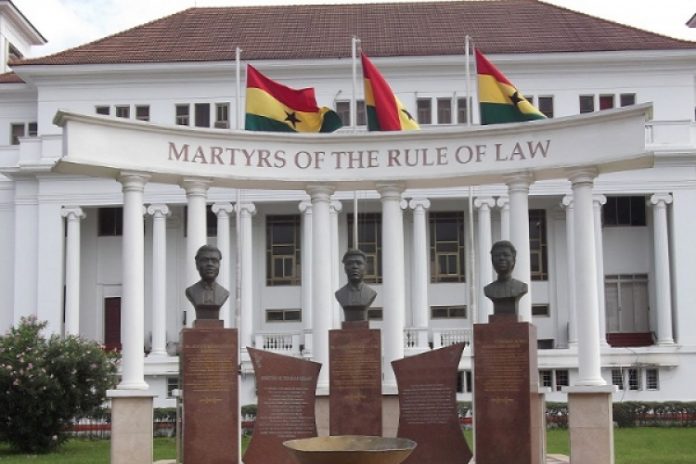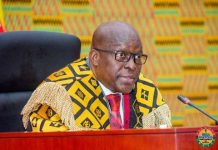Supreme Court Justice Yonni Kulendi has affirmed that Ghana’s highest court will not be swayed by international pressures regarding its stance on homosexuality.
In his concurring opinion, Kulendi stated that the Supreme Court “cannot be cajoled into adopting” the homosexuality practices of other countries due to “peer pressure.”
Kulendi emphasized that the Constitution of Ghana is “supreme” and not subordinate to the laws and constitutions of other nations. His remarks came as part of a unanimous decision by a seven-member Supreme Court panel, which dismissed a writ challenging the constitutionality of provisions criminalizing homosexuality.
On July 24, 2024, the Court upheld the legality of constitutional provisions against homosexuality and unnatural carnal knowledge (anal sex). The panel, chaired by Justice Paul Baffoe-Bonnie and including Justices Avril Lovelace-Johnson, Omoro Amadu Tanko, Ernest Gaewu, Yaw Darko Asare, and Agyei-Frimpong, ruled that Section 104(1)(D) of Act 29 is not discriminatory and does not violate individual privacy rights.
The Court found that the criminalization of unnatural carnal knowledge under Section 104(1)(b) of the Criminal and Other Offences Act, 1960 (Act 29) is consistent with the 1992 Constitution and therefore not unconstitutional. The panel dismissed the action brought by Dr. Obiri-Korang, a law lecturer who sought a declaration on the constitutionality of this section.
In his concurring opinion, Justice Kulendi stressed that despite other countries legalizing and promoting homosexuality, Ghana’s Constitution is unique. He asserted that the Court’s role is to uphold Ghanaian law, not to adopt foreign legal perspectives. Kulendi cautioned against judicial activism that might usurp legislative powers, reaffirming that the Supreme Court’s duty is to apply Ghanaian law as it stands.
Kulendi concluded that Section 104(1) of Act 29, which criminalizes unnatural carnal knowledge, does not conflict with the Constitution.
He critiqued the plaintiff’s argument that private morality should influence constitutional privacy rights, asserting that such a view lacks context within Ghana’s constitutional framework.
Read also:
Election 2024: NDC won’t sign any peace declaration ahead of polls – Asiedu Nketia
Daakyehene Nana Yaw Asante












